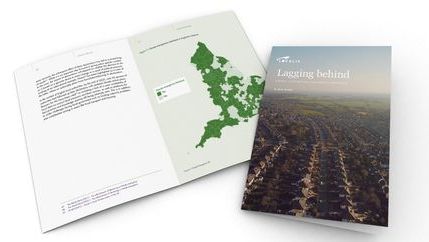
The Scheme was introduced to provide grants until 2025 for all domestic and small non-domestic properties in England and Wales to install low-carbon heating systems in their homes.
Six months into the scheme, the House of Lords Built Environment Committee opened an inquiry into its effectiveness, to which we responded by reaching out to Propertymark members for views. The following insight and recommendations have been shared with the Committee.
Only 3% of members surveyed applied for the grant
The grant has proven to be unappealing to members or unsuitable. 48% of surveyed members also stated they were unaware of the grant’s existence, indicating that the scheme has been poorly marketed.
The grant provided insufficient funding
Most members who had heard of the scheme stated they have not applied since the grant did not sufficiently cover installation costs. Considering Propertymark’s previous research showed standard retrofitting costs can reach as high as £24,000, retrofitting remains unaffordable for most property owners even with the support of a grant.
Lagging behind: energy efficiency in low-viability properties
This report raises concerns over the affordability of retrofitting properties and highlights that residents in the North of England will be the hardest hit. Failure to factor in huge regional variations in property costs when incentivising homeowners and landlords to meet national net zero targets risks deepening economic inequality.
The grant’s scope is too narrow
Other members cited the grant was not suitable for properties, such as flats, older properties or properties which ran from a communal boiler. 100% of members who had used the grant stated that what is funded should be expanded upon.
One size doesn’t fit all
The size of the grant should be proportionate to the costs of improving the energy efficiency for that particular property, rather than a one-size fits all approach. This would ensure that the funding would support energy efficiency improvements based on the needs and available resources of individual property owners.
If things don’t change
If the design of the boiler upgrade scheme remains unchanged, the following measures should take place:
- increase the size of the grant
- develop a national marketing strategy to build awareness for the scheme
- allow property owners to use the grant for other energy efficiency measures such as double glazing






